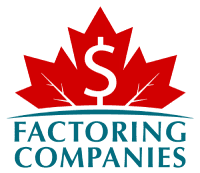Invoice Factoring for Service Providers
All companies need access to working capital in order to operate, and in times when money is scarce, financing options are usually the first choice. However, it can be tougher forthose in the service industry to qualify to receive a bank loan than it would be for a business in another industry. This is mainly because business service companies usually have fewer assets, resources, or pieces of equipment that could be used as collateral. The lack of stock and inventory doesn’t help their case either.
An Invoice factoring service is a great option for businesses that need a quick injection of cash to facilitate growth initiatives or to fill cash flow gaps.
Optimizing Cash Flow for Service Providers through Invoice Factoring
Invoice factoring emerges as a vital financing solution for service providers in industries where cash flow can be challenging, such as staffing and trucking. This financial approach turns accounts receivable into immediate cash, offering a practical alternative to traditional bank loans, particularly for businesses that may not have substantial collateral.
The process for invoice factoring focuses primarily on the value of outstanding invoices, rather than the company’s assets or credit history. This makes it an attractive option for a wide range of companies, including those needing payroll funding or with substantial monthly revenue, who might not easily qualify for conventional loans.
Factoring services provide several key benefits, including an advance on the invoice value, followed by the remainder once the invoices are paid. This system ensures a consistent flow of working capital, essential for day-to-day operations, covering payroll, fulfilling purchase orders, and facilitating expansion.
For service providers, especially in the trucking industry or businesses with fluctuating cash flow, factoring is a fitting financial strategy. It allows these companies to maintain sufficient working capital, control costs, and manage financial stability even in slower business periods.
Invoice factoring represents a flexible and effective solution for managing cash flow in the service sector. It offers quick access to working capital based on unpaid invoices, helping businesses bridge cash flow gaps and concentrate on growth and stability without the financial strain of traditional loans.
Service Provider Factoring vs. Bank Loans
Invoice factoring allows companies that need the opportunity to obtain the working capital they need without needing to put up physical assets as collateral. Instead, factoring companies focus on another asset altogether – your outstanding invoices (accounts receivable).
Instead of going through the lengthy application process with a bank, where you may not even be approved, invoice factoring companies usually offer approval within as little as two business days. Plus, your credit score isn’t a factor, so qualifying for factoring is a lot easier (especially for small businesses with poor or limited lines of credit). The main thing a factoring company is concerned about is how likely your customers are to pay. So, as long as your customers have a strong payment history, you can get the working capital you need to cover essential business expenses such as payroll, operating expenses, and even your business growth.

Plus, invoice factoring is debt-free, so your company credit score won’t be negatively affected! Invoice factoring is not a loan – it is a business transaction where you are essentially “selling” your unpaid invoices to a factoring company. So, instead of borrowing money against your physical assets, you are simply getting an advance on money your business would have received later on.
Top Financial Challenges in the Service Providers
Running a service-based company is not an easy task. Keeping your service company solvent, profitable, and productive can be a lot more difficult without physical products to sell.
Professional services firms are consistently plagued by hiring difficulties, schedule setbacks, and cash flow constraints. Getting ahead of your financial challenges is possible, but you need to be aware of them first. Some of the most common financial challenges faced by service providers include:
How to Run a Successful Service Company
Innovation is a core skill for B2B companies, like service providers, because you will need to be creative about your strategies for client retention, cash flow management, expansion, and the management of your business as a whole if you hope to stay solvent.
You are not selling a product, so your income comes from the services you provide. This means that your business management techniques and strategies need to be clever – they need to be targeted at three main pillars:
Financing Options for Service Providers
For most small companies and start-ups, cash flow is the biggest problem they face, especially when they’re growing. The same is true for service providers, but bank loans may not always be an option, and even if you do get approved, you will likely be hit with less-than-ideal repayment terms and interest rates. This is why many service providers rely on alternative financing options such as:
Debt Financing: Debt Funding (also known as debt financing or debt lending) is a way for a business to raise capital by borrowing money. It will be necessary to repay this funding at a later date, usually through regular interest-bearing repayments. Common sources of debt funding include:
Equity Financing: Equity Financing (or equity funding) is typically used by companies expecting rapid growth and quick returns on investments. It involves relinquishing shares in your company in return for a cash investment. The investor will own a stake in your company and benefit from its success. Types of equity funding include:
Invoice Factoring: Invoice factoring is one of the most flexible and convenient funding sources available for small businesses. The process involves selling your unpaid accounts receivable to a factoring company in return for a percentage of their value upfront. The factoring company will often handle collecting payment for the invoices, and once all of your customers have settled their accounts, the factoring company will reimburse you the remaining balance (minus a small factoring fee).
Invoice factoring can help with an advance on money that is already owed to your business, but it also relieves strain on your collections department and gives you the immediate cash flow you need to cover essential expenses such as payroll, equipment, and growth. The application requirements are minimal, and payment is almost instant, so you can get the funding amount you need without jumping through the numerous hurdles of traditional financing.
If you would like to learn more about invoice factoring for service providers, or you’re in the market for a factoring company to partner with, Factoring Companies Canada is a directory of the best factors in the country.
Want to get started with invoice factoring for service providers? Request a factoring rate quote today.
Get an instant factoring estimate
Factoring results estimation is based on the total dollar value of your invoices.
The actual rates may differ.
CLAIM YOUR FREE FACTORING QUOTE TODAY!
PREFER TO TALK?
You can reach us at
1-866-477-1778
What People Say About Our Factoring Partners
“I’m very happy with the service I’ve received from beginning to end.”
“Very helpful and welcoming from the beginning to present. Outstanding TEAM!!!!”
“I am more knowledgeable about my business and have more help now than I could have ever imagined. Great experience !!”
“The whole staff is very friendly knowledgeable, helpful, and go to extra mile to make sure you accomplish all your goals.”
“Good customer service, a good partner for your business to grow!”
“Everyone I talk with is very knowledgeable and patient in helping get the information needed to improve my Business! Thank you!”
Get an instant factoring estimate
Factoring results estimation is based on the total dollar value of your invoices.
The actual rates may differ.
CLAIM YOUR FREE FACTORING QUOTE TODAY!
PREFER TO TALK? You can reach us at 1-866-477-1778
As Seen In






Our Partners Belong To






